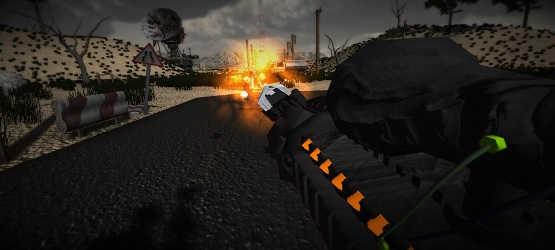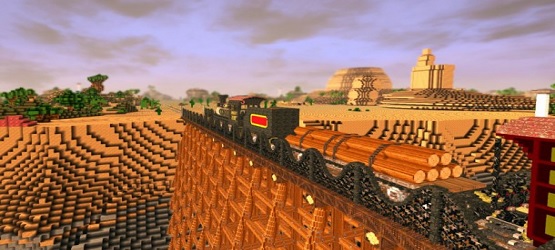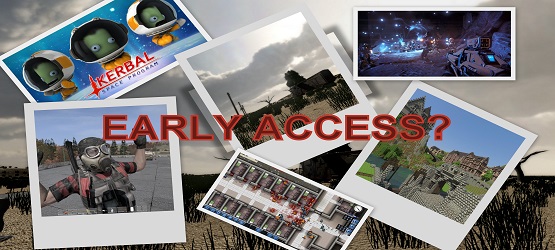“Early Access” seems to be one of the latest trends in the video games industry that has attracted controversy and varied views. Although the concept itself isn’t new, a lot of developers are increasingly opting for this funding model, resulting in the topic being widely debated. I’ve read a plethora of articles by writers that I respect, and felt compelled to chip in because I have yet to hear a balanced view. As a gamer, I don’t want to be misled into believing that early access games and programs are the absolute way forward, or conversely, that they’re the worst thing to happen to the video games industry. Gamers need to be given a choice, but it’s equally important that they’re well-informed.
I say this without a doubt that Steam’s experiment with early access has been fruitful despite some setbacks. It’s evident that players are willing to pay for a game that’s in development, and it’s an excellent way of bringing developers and players together. Those who are enthusiastic about a certain project get to be part of the development cycle to which their feedback is a valuable contribution. At the same time, it has helped a lot of low-key and indie developers secure funding for their games. We’re not short of success stories stemming from early access either; Markus Persson’s Minecraft and Bohemia Interactive’s DayZ are prime examples of this model deployed right. For about $15 a piece, Persson continued to develop a game that he was passionate about, and ended up finding his own studio, Mojang. It was due to Minecraft being well received in its early stages that he found success. Similarly, reviews of DayZ’s alpha have been positive, with many declaring that the game is already worth its price in the alpha mode.

The problem started occurring when this model was misapprehended and abused. Following some success stories, a lot of developers immediately caught on, considering early access an effective way of having their projects funded and their games tested. What they failed to realize was the commitment and effort it requires to achieve success. Developer Killing Day Studios placed Earth: Year 2066 on Steam with a number of promises that it failed to keep. As a result, buyers were misled into believing that they were buying a game that had great potential and was in a playable state although the reality was far from it. When backlash ensued, Steam removed the game and issued refunds, but the heaviest loss a company can possibly incur in any industry is that of trust. I wouldn’t spend a penny on another Killing Day Studios game.
The other main issue with early access is the actual term itself. I have yet to find a concrete definition of what early access implies. Gauging various commentaries online, I find that a number of writers in favor of this model have declared that people who are against early access are those who assume that only “complete” games are worth buying. Minecraft is a popular example that people quote, stating that there’s no end to this game for it to be considered complete yet it’s worthy of being purchased. That’s debatable, too. Minecraft is in fact continuously developed, and anyone who plays it can attest this. Ever since its inception, the game has received tons of content and various kinds of updates that add something new to it. Compare that to games that developers add content to until a certain point in time, but eventually call it quits on. There’s a huge difference. Additionally, Persson had the basic idea nailed, which is not something that we can say for every developer under the sun.

The way I look at it, the term “early access” implies that a game will be completed later on, which could mean two things; a. the game remains in continuous development but has a complete set of features and thus, in a marketable state or b. developers will finish their work on the main game with only minor tweaks or DLC to be added later on.
When Sony announced that it was considering an early access program, I can’t say that I was overjoyed. While I’m pro-choice and recognize that there are people out there who are willing to pay to test games, I’m also worried that such a program can also result in a large number of ambitious projects sitting in development with no guarantee that something meaningful will ever come out of it. While this scheme can particularly help budding developers to raise funds and complete games, I’m also conscious that it can be a deterrent in that the motivation to actually finish a game can be lost when you’re able to charge a price for an unfinished product.

With all that being said, we must remember that times change, trends develop, and industries evolve, so we need to keep an open mind. An early access program is entirely optional, and as long as developers are transparent, I see no issue with people opting to pay for testing games. However, I’m mindful of the impact that such a program can have on the industry as a whole if it isn’t strictly monitored. If companies like Sony make the decision to go ahead with an early access program, I hope that it’s piloted first, with the view to ensuring that gamers like me don’t end up being bombarded with promotional material for unfinished games. Additionally, it’s equally important that not every one in five games ends up being shoved into the early access category.
You can flip through some other popular early access titles below.
Early Access Games
-
FortressCraft Evolved

-
Godus

-
Kerbal Space Program

-
Prison Architect

-
Rust

-
Space Engineers

-
Starbound

-
Wasteland 2








